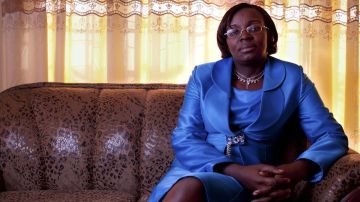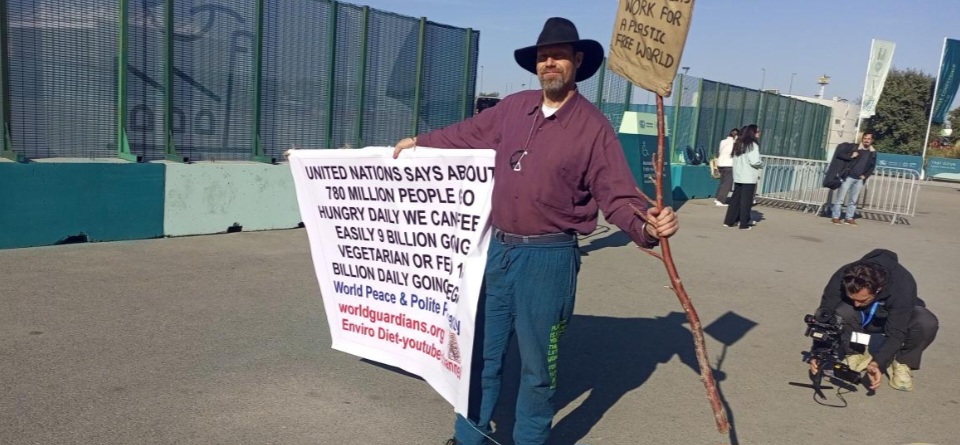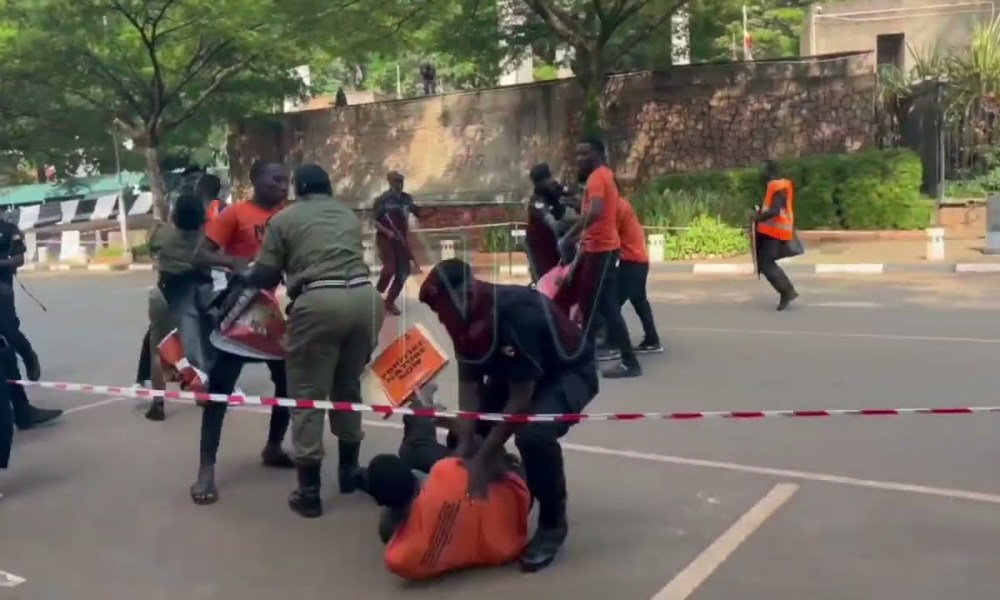
Wealthy Nations Urged to Fulfil Climate Finance Commitments as COP29 Opens
As the 29th United Nations Climate Change Conference (COP29) convenes in Baku, Azerbaijan, global attention has turned to wealthy nations.
These nations, responsible for over 90 percent of global greenhouse gas emissions, are under increasing pressure to fulfill their financial commitments to help vulnerable countries combat the intensifying climate crisis.
Teresa Anderson, ActionAid International’s Global Lead on Climate Justice, said that there is an urgent need for substantial financial commitments from developed countries to help frontline nations address the escalating costs of climate impacts, from disaster recovery to green transitions.
“Frontline countries who have done almost nothing to cause the problem are being pushed deeper into debt by the climate crisis,” Anderson said in a press statement released by ActionAid international hours to the opening of the conference. For years, developed nations have pledged to provide financial assistance to developing countries to mitigate and adapt to climate change, as well as address loss and damage.
However, these promises have largely gone unfulfilled, leaving frontline nations in the Global South—particularly in Africa, South America, and Asia—to bear the brunt of climate impacts. Anderson emphasized that countries bearing the brunt of climate impacts desperately need a new COP29-backed climate finance goal in the trillions of dollars, in the form of grants—not loans or corporate investments, which many wealthier nations are advocating.
“If we want to unleash climate action that can save our future, the countries that caused the crisis must pay to fix it. Paying for ambitious climate action now will be far cheaper than facing the cost of catastrophe later,” Anderson added.
Kelly Stone, a Senior Policy Analyst at ActionAid USA, highlighted the critical need for grant-based finance as a fair-share approach. “Market mechanisms are not climate finance. They allow polluters to avoid cutting their own emissions by offsetting instead of real reductions, which is unacceptable and fails to meet developed countries’ obligations,” she said.
The call for urgent action was echoed by Farah Kabir, Country Director at ActionAid Bangladesh, who stressed the disproportionate impact on Global South nations like Bangladesh.
“2024 has been Bangladesh’s worst year yet,” Kabir stated. She recounted the devastating effects of Cyclone Remal, which displaced millions in June, followed by widespread flooding that left over five million more struggling to recover.
Kabir urged leaders to act swiftly, emphasizing that communities in the Global South cannot afford delays. “Time lost means more lives lost, greater destruction of livelihoods, and more severe food insecurity. Climate finance is essential now to help our communities build resilience and adopt greener pathways.”
Post Views: 1,019
Wealthy Nations Urged to Fulfil Climate Finance Commitments as COP29 Opens
News
Ugandan Citizen Abducted, Held in Secret Detention for Three Months, Sparks Outrage and Calls for Justice

A disturbing new case of unlawful detention has surfaced, highlighting the ongoing human rights crisis in Uganda. A Ugandan citizen was reportedly abducted and held in a secret facility, known as a “safe house,” for three months, only to be released without charge or explanation. This incident, reported by NTV Uganda, has sparked widespread condemnation and renewed calls for accountability regarding human rights abuses in the country.
While the details surrounding the abduction remain unclear, reports indicate that the individual was taken without due process and held incommunicado—an action that has long been condemned by human rights organizations. The victim’s release, with no charges filed and no clear justification, has angered activists and citizens, who view this as yet another case of egregious abuse of power by the state.
“This is a recurring pattern,” said one human rights activist. “Abductions, secret detentions, and unexplained releases have become all too common in Uganda. These acts violate fundamental human rights and erode public trust in the justice system.”
The use of “safe houses,” unregistered detention facilities reportedly operated by security forces, has been a focal point in numerous allegations of torture and illegal imprisonment. Despite repeated calls from both local and international organizations for their closure and accountability for those involved, little action has been taken to address these violations.
This case underscores the urgent need for reform within Uganda’s security apparatus and greater accountability for human rights abuses. Observers hope that drawing attention to these injustices will spur concrete action to bring those responsible to justice and ensure the protection of basic human rights.
As frustration mounts, calls for both domestic and international pressure to hold the government accountable for such crimes grow louder. “One day, there must be accountability for all these crimes against our people,” stated one social media user, reflecting the sentiments of many Ugandans.
News
NUP Gathering Disrupted: Kyagulanyi Alleges Security Force Harassment and Arrests

National Unity Platform (NUP) President Robert Kyagulanyi has accused Ugandan security forces of using excessive force to disrupt a planned NUP gathering. The allegations were detailed in a statement shared on Twitter, following an event held to honor children of NUP supporters who were killed, disappeared, or detained for their political beliefs.
According to Kyagulanyi, security personnel, under the command of an officer identified as Asiimwe, carried out a preemptive operation early in the morning upon learning of the NUP’s plans. The forces allegedly stormed the premises, arrested workers, and deployed tear gas to disperse those present.
“The criminals under the command of one Asiimwe deployed early morning, arrested our workers, and threw tear gas into our premises. They’ve cordoned off the premises and blocked all people from accessing the place,” Kyagulanyi wrote.
Among those reportedly arrested were Saava Peter, Mudenya Samson, and Turyasingura Samson. Kyagulanyi claimed the detained workers were subjected to beatings and interrogated about their political affiliations, with security operatives labeling them as terrorists.
“These JATT operatives asked the workers who they support politically, branding them terrorists and criminals—their only crime being that they work with us. You can imagine the indignity!” Kyagulanyi lamented.
This incident adds to the growing tension in Uganda’s political climate, where opposition parties frequently accuse the government of stifling dissent. Despite the challenges, Kyagulanyi ended his statement with a message of defiance and optimism, proclaiming, “UGANDA WILL BE FREE.”
NUP Gathering Disrupted: Kyagulanyi Alleges Security Force Harassment and Arrests
News
Sudan Demands Apology from Uganda Over Army Chief Muhoozi Kainerugaba’s Threat to Invade Khartoum

Sudan has demanded an official apology from Uganda over “offensive and dangerous” comments made by the chief of Uganda army staff, who threated to invade Khartoum, the Sudan Tribune has reported.
General Muhoozi Kainerugaba, son of Ugandan President Yoweri Museveni and CDF of the Ugandan army, posted two comments on the X platform on Tuesday in which he threatened “to capture Khartoum” with the support of the US President elect Donald Trump after he takes office. The posts were deleted later.
“The government of Sudan demands and official apology from the Ugandan government for the offensive and dangerous comments of the army commander,” Sudan’s foreign ministry said in a statement that the Sudan Tribune said it has seen.
Sudan Demands Apology from Uganda Over Army Chief Muhoozi Kainerugaba’s Threat to Invade Khartoum







